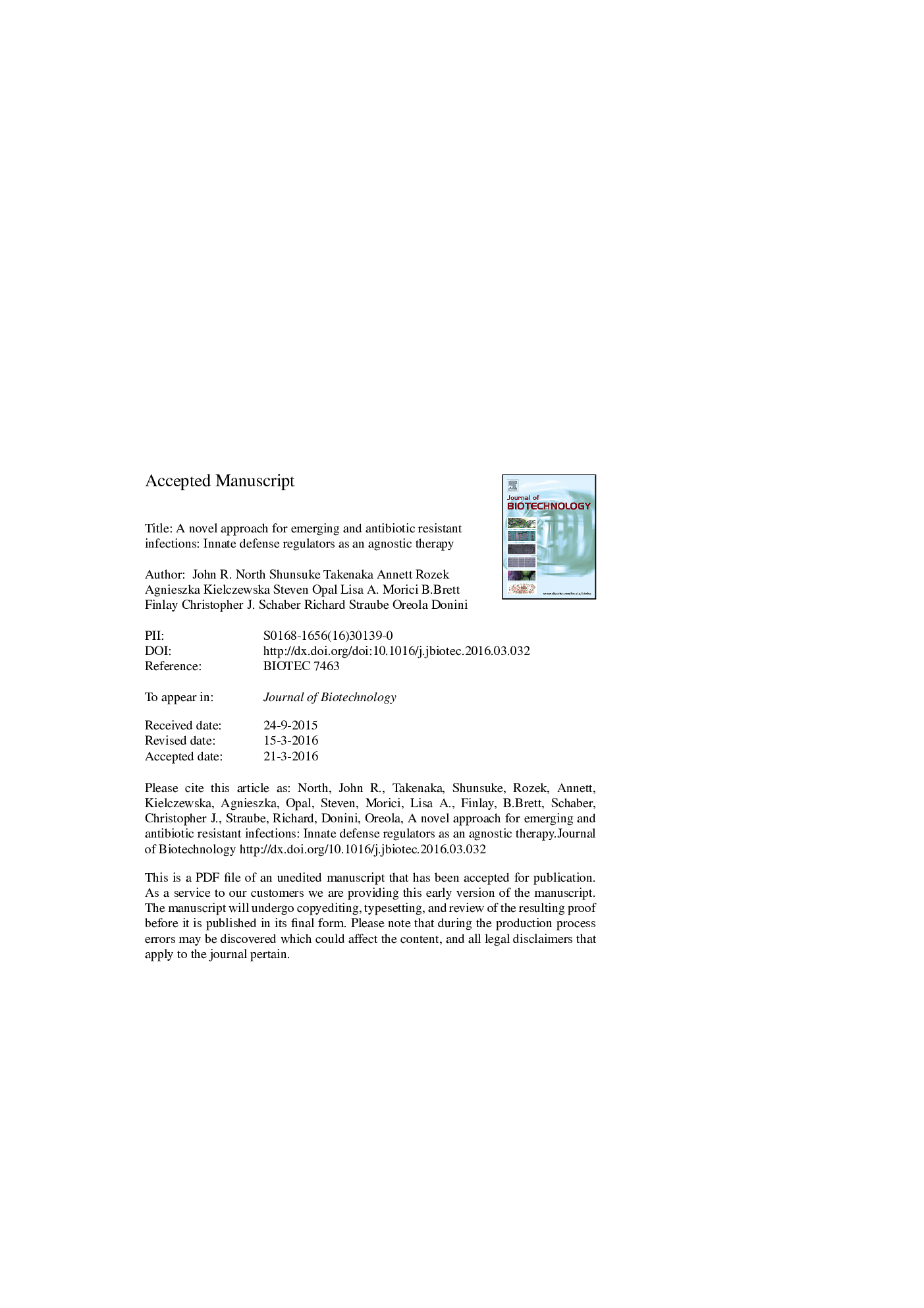| Article ID | Journal | Published Year | Pages | File Type |
|---|---|---|---|---|
| 6490584 | Journal of Biotechnology | 2016 | 35 Pages |
Abstract
The studies reported here show that the lead clinical IDR, SGX94, has broad-spectrum activity against Gram-negative and Gram-positive bacterial infections caused by intracellular or extracellular bacteria and also complements the actions of standard of care antibiotics. Based on in vivo and primary cell culture studies, this activity is shown to result from the primary action of SGX94 on tissue-resident cells and subsequent secondary signaling to activate myeloid-derived cells, resulting in enhanced bacterial clearance and increased survival. Data from non-clinical and clinical studies also show that SGX94 treatment modulates pro-inflammatory and anti-inflammatory cytokine levels, thereby mitigating the deleterious inflammatory consequences of innate immune activation. Since they act through host pathways to provide both broad-spectrum anti-infective capability as well as control of inflammation, IDRs are unlikely to be impacted by resistance mechanisms and offer potential clinical advantages in the fight against emerging and antibiotic resistant bacterial infections.
Related Topics
Physical Sciences and Engineering
Chemical Engineering
Bioengineering
Authors
John R. North, Shunsuke Takenaka, Annett Rozek, Agnieszka Kielczewska, Steven Opal, Lisa A. Morici, B.Brett Finlay, Christopher J. Schaber, Richard Straube, Oreola Donini,
